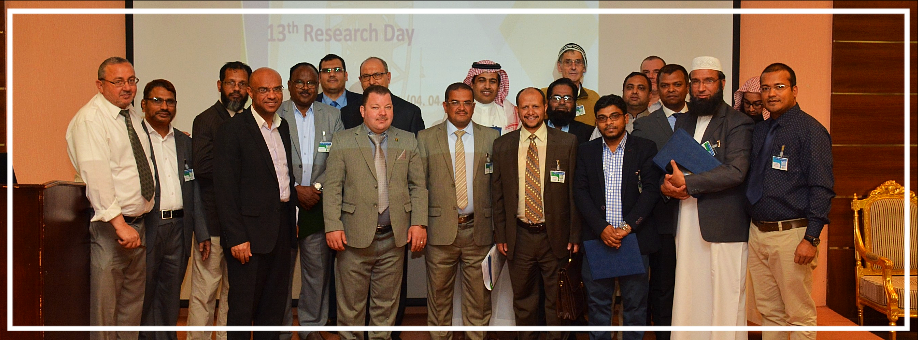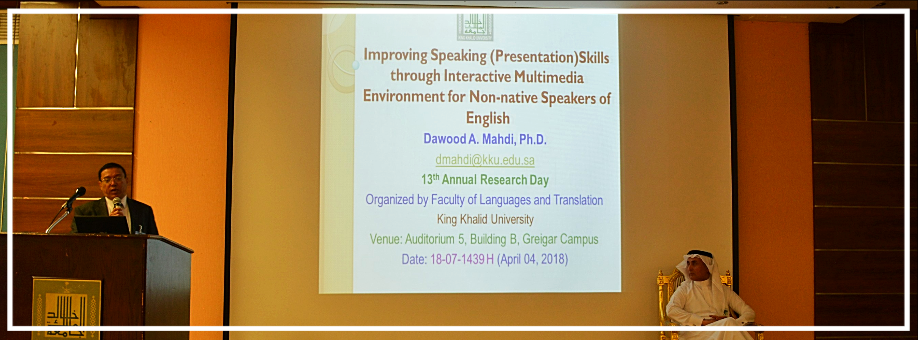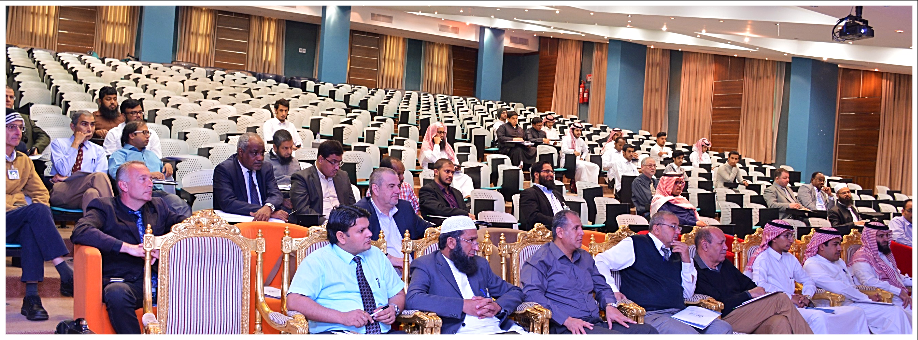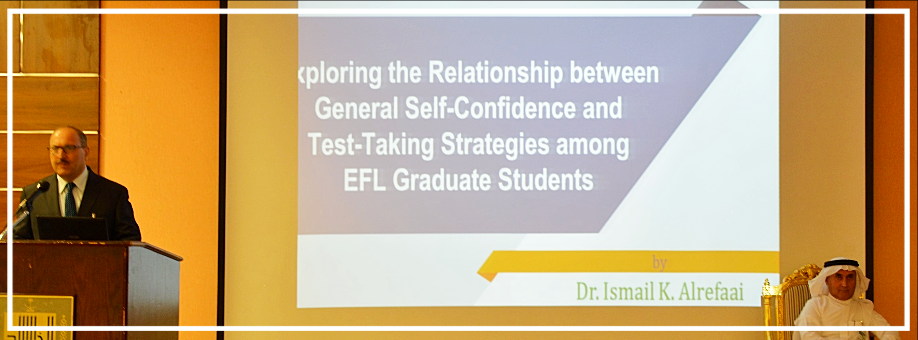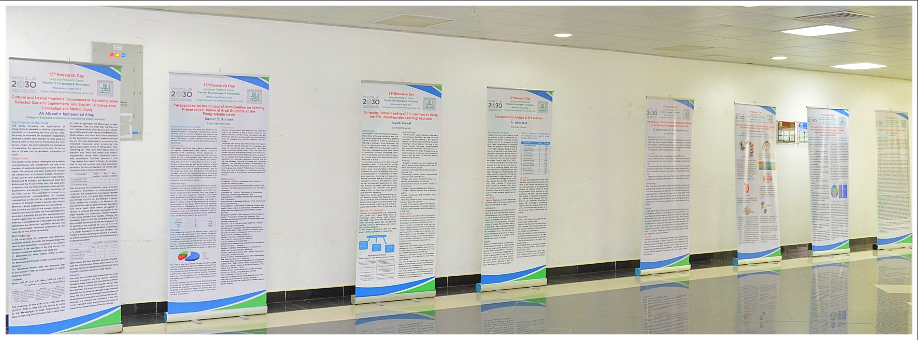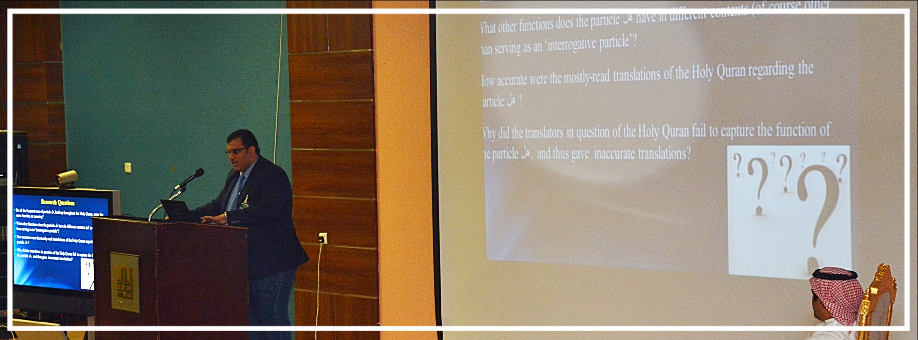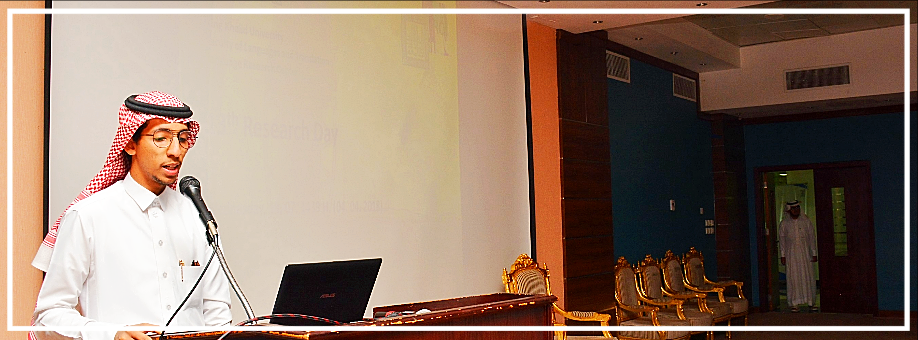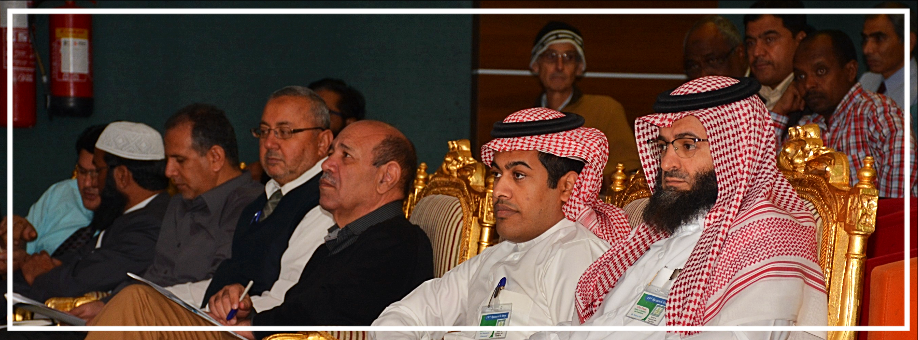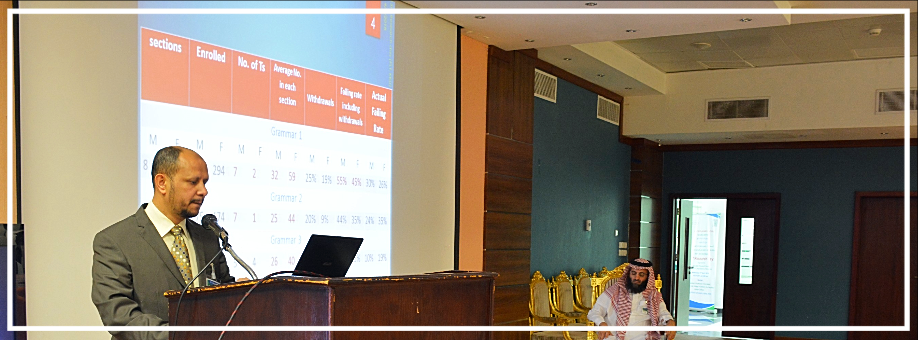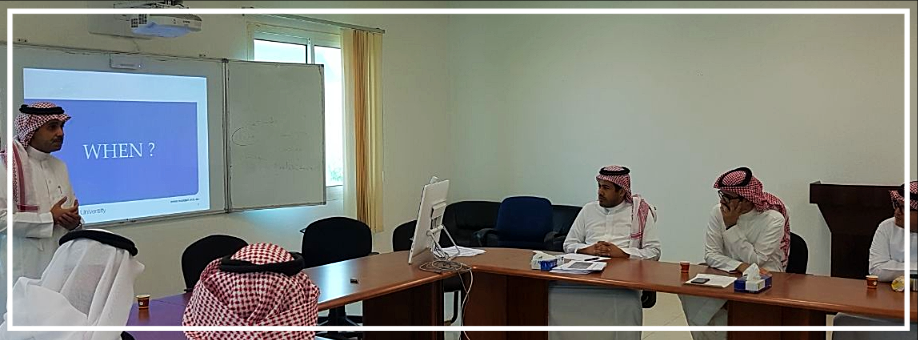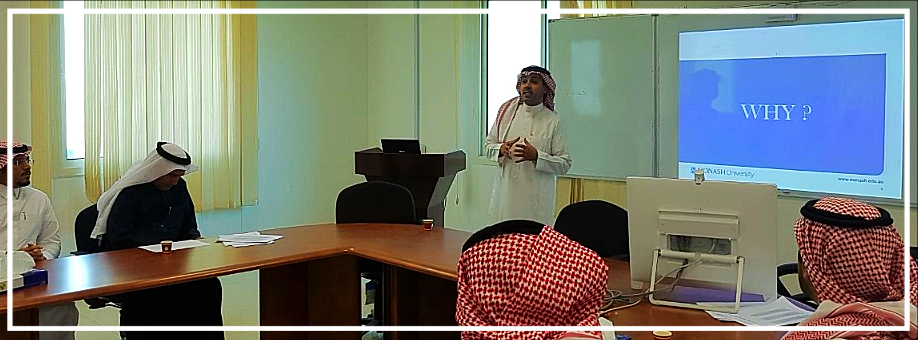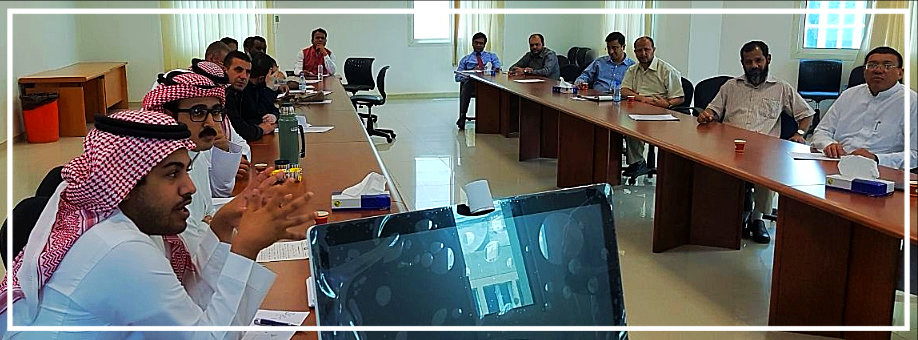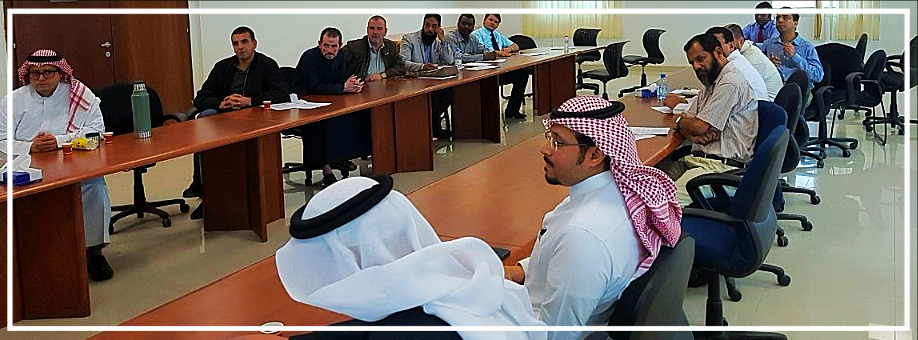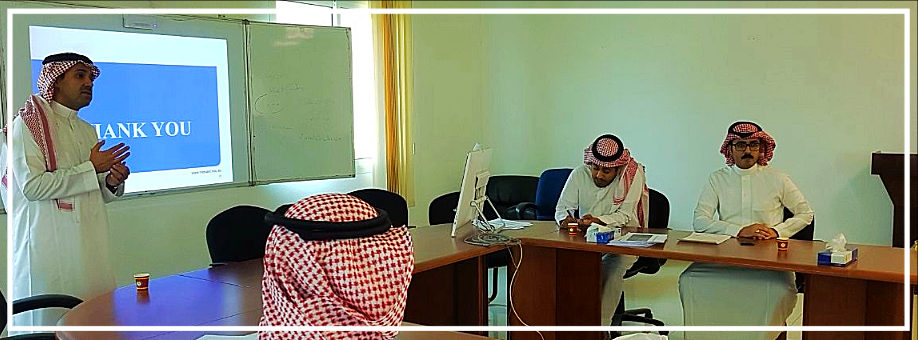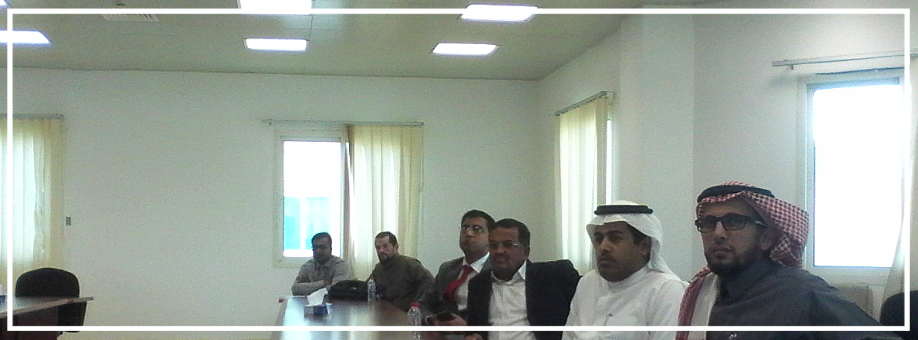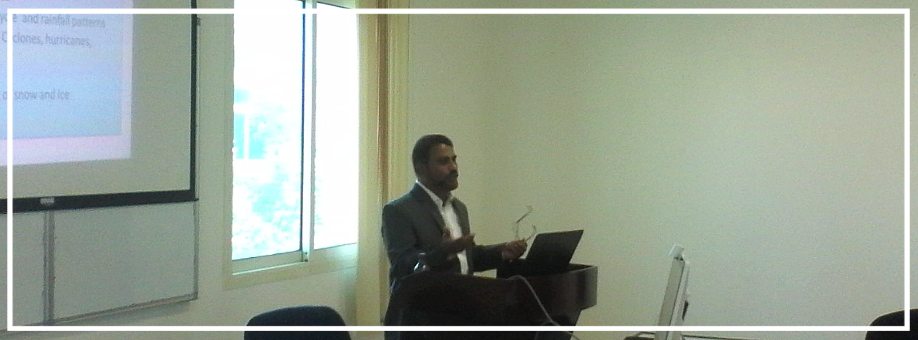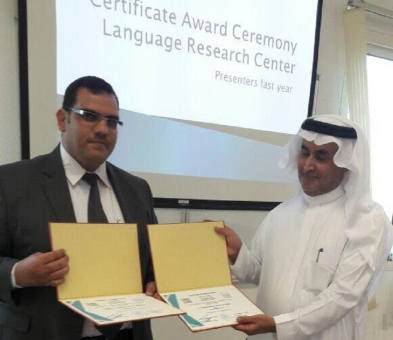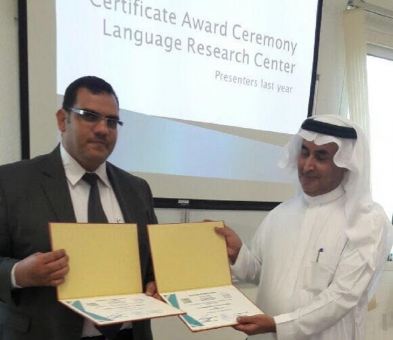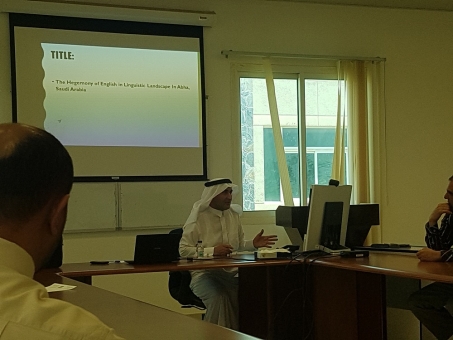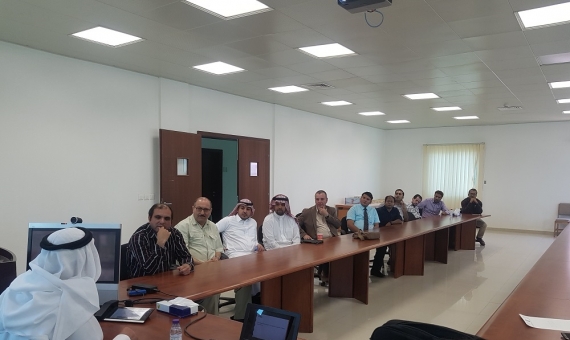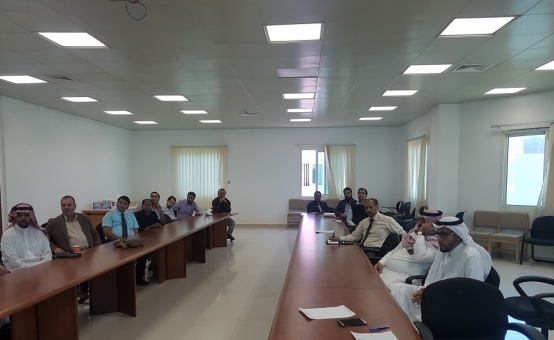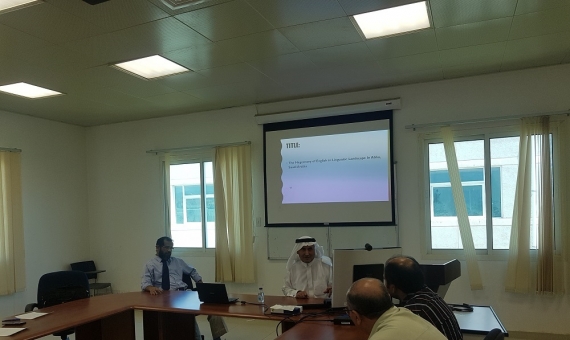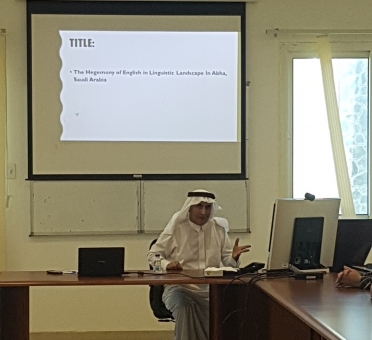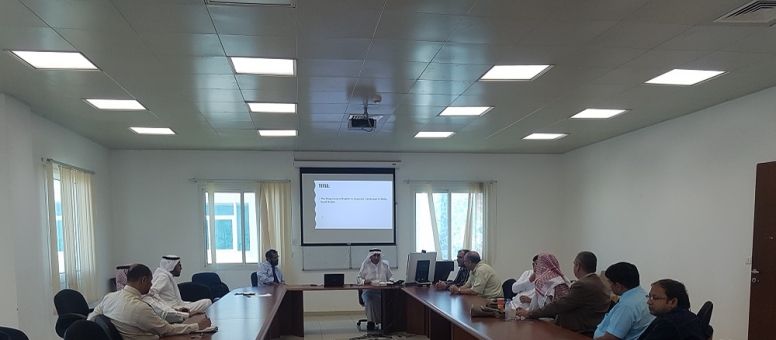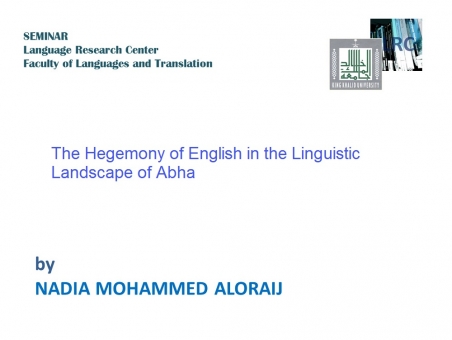FLT Celebrates the Thirteenth Annual Research Day
The 13th Annual Research Day, under the supervision of Dr. Ismail Al-Refaai, Director of the Language Research Center, was held on April 04, 2018 at King Khalid University. The program commenced with a recitation of the Qur'an and a welcome speech by Dr. Abdullah Al-Melhi, Dean for the Faculty of Languages and Translation. In his opening remarks, he encouraged the faculty members to take part in academic events and at the same time emphasized its importance. He highly appreciated the faculty members who contributed their research work for the event and recognized their hard work. He also conveyed his heartfelt thanks to the organizing committee who had worked behind the scene.
The theme of the first and second session was English Language Teaching and Learning.
The first speaker of the first session was Dr. Munassir Alhamami whose presentation was titled Beliefs Enable Learners to Succeed in Language Learning Environments. His research substantiated that language educators should investigate language learning from students’ perspectives in order to understand learners’ beliefs. This was followed by Dr. Dawood Mahdi’s presentation titled Improving Speaking Skills through Interactive Multimedia Environments which was based on the impact of multimedia technology on learning instruction development. He concluded that a lack of speaking skills among students correlates with a poor speaking learning process. Dr. Ismail Al-Refaai, who appeared third, spoke on the topic of Exploring the Relationship between General Self-confidence and Test-taking Strategies among EFL Graduate Students which emphasized that test-taking strategies are teachable and this can enhance learners’ self-confidence. Dr. Najmus Sarifa’s topic was Techniques for Teaching Professional Vocabulary, with Special Reference to Vocabulary Used in the Media. Her comparative research project concluded that vocabulary teaching and learning could be labeled as ephemeral and therefore for proper learning, vocabulary must be contextualized. The last speakers Ms. Sanjida and Tanzina Halim’s presentation was tilted Application of Elicitation in the Language Classroom which emphasized that elicitation is the primary technique that should be used regularly in class to enhance learner-involvement.
The second session started with Dr. Abdul Wahid Al Zumor’s presentation titled The Implications of the Test Results for Action Research: A Case Study from the English Program at KKU which emphasized the importance of immediate investigation into the statistical differences in test results for the male and female campuses for accreditation. Dr. Sara Huseynova appeared second with her presentation titled On the Application of High-impact Communicative North American ELL Teaching Methodologies. She, while highlighting various approaches associated with the Communicative Language Teaching, emphasized the effectiveness of Communicative Language Teaching. Dr. Ali Mohammad Al-Asmari and Mr. Shamsur Rabb Khan’s paper was titled Connecting Saudi English Language Learners to the Outside World. Mr. Khan highlighted the significance of enhancing Saudi Learner exposure to outside world for better learning. Ms. Sufia Sultana, on the other hand, spoke on the topic of Humor: A tool to Enhance EFL Learning which concluded that humor in the language classroom increases the strength of human connections that helps with successful learning. The fifth presenter, Ms. Tanzin Ara Ashraf’s presentation, was titled Strategies to Overcome Speaking Anxiety among Saudi EFL Learners which explored the leading causes of speaking anxiety among the target group and concluded that some remedial measures must be taken. The last speaker Mr. Mazharul Islam, in his presentation titled Interlanguage: A Case Study of a Korean Learner, shared his research outcomes that focused on the appearance of Interlanguage during second language acquisition.
The theme of the third session was Translation and Literature.
The first presentation was by Ms. Amal M. Metwally, which was titled An Investigation of the Success of Machine-Aided Translation. Her study explored the history of Machine Translation (MT) and the breakthroughs achieved in the field of translation and concluded that MT is a sophisticated technology the success of which can only be achieved by the harmonious involvement of both man and machine. Dr. Eyhab Bader Eddin, who appeared second, spoke on the topic of Different Linguistic Functional Behaviors of the Conjunction هل Bring about Translation Deviations. His study pinpointed an area which had been neglected by most translators of the Qur'an and concluded that they had an inadequate understanding of the function of the conjunction his research was based on. Dr. Hasan Jaashan’s presentation was titled Stylistic Study of Onomatopoeia in Arabic Poetry. His study aimed at making a stylistic study of onomatopoeia to ascertain how sound and meaning are interconnected in Arabic Poetry and concluded that the combination of high-ranking phonemes is an effective way to consider the leading role of sounds in understanding the meaning of a poem. The fourth speaker, Ms. Irin Sultana, in her presentation titled Treatment of Marxism and the American Depression in Clifford Odets’ Waiting for Lefty, highlighted the fact that the working classes of the world would feel an urge to rise up in order to systematically fight for a better living, and she concluded that Waiting for Lefty showed the ways common people can fight against repression. The next presenter Dr. Sayed Bilal Kadiri highlighted the way Islam is represented in a TV show in his presentation titled The Representation of Islam and Muslims in a British Television Program. He concluded that Citizen Khan reinforced negative stereotyping of Muslims. Ms. Qudsia Zaini, the last presenter, spoke on the topic of Shakespeare and the Art of Living in the Modern Times, where she emphasized that studying Shakespeare could help in building the imagination and developing cultural awareness among learners and concluded that understanding and appreciating Shakespeare is essential for contemporary students.
Besides oral presentations, there were posters as well. Mr. Ali Albashir Alhaj, Ms. Alvina Yousaf, Mr. Salahud Din Abdul Rab, Ms. Batoul Abdullah Ismail, Dr. Haseeb Ahmed, Dr. Rizwana Wahid, Dr. Oveesa and Farooq, Ms. Rukhshinda Jabeen, Dr. Wafa Saud, Ms. Samar Y. Alnmer and Mr. Mohammad Siraj made posters titled Cultural and Lexical Problems Encountered in Translating some Selected Qur'anic Euphemisms into English: A Comparative Conceptual and Stylistic Study, Enhancing Critical Reading of EFL Learners by Using the SRL (Self-Regulated Learning) Approach, Investigating the Role Played by Reading Speed in Increasing the Reading Comprehension of English Major Students of King Khalid University, Arabic and Western Lexicography - a Comparative Historical Study, Juxtaposing Philosophies: W.B. Yeats and Islam, The Influence of Derivational and Inflectional Morphology on the Writing of EFL Undergraduate Students, Literature in EFL Classroom: An Analytical Study, Collocation Error Analysis of EFL Learners, Perspectives on the Impact of Arabicisation on Identity Preservation: Views of Arab Students at the Postgraduate Level and Efl Learners’ Engagement in an Online Environment Enhances the Learning Outcomes in King Khalid University Respectively.
The 13th Annual Research Day was a great success, and it gave the participants an opportunity to discuss and share their thoughts.
Date: 4/7/2018
Source: Mohammad Adil Siddique
Multimedia Source: Sayed Karim

